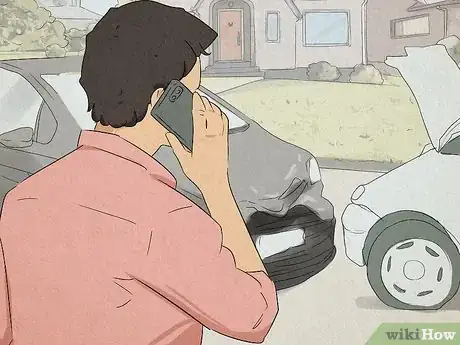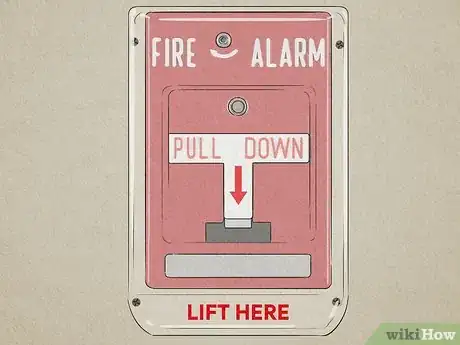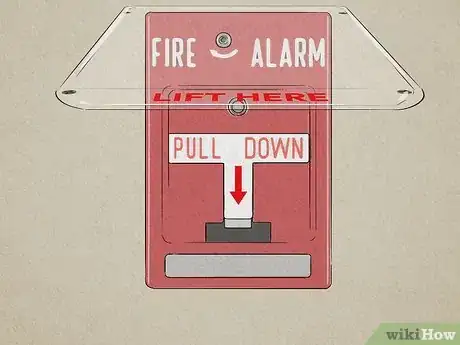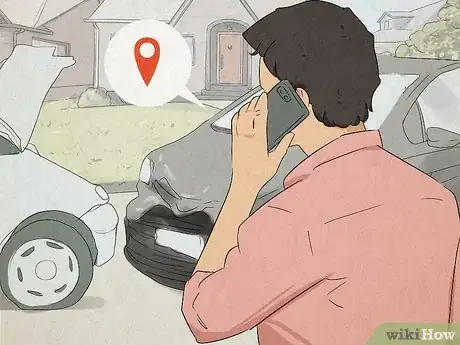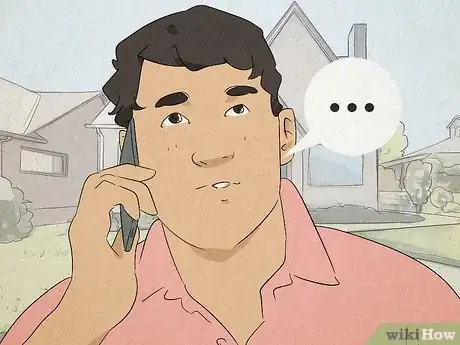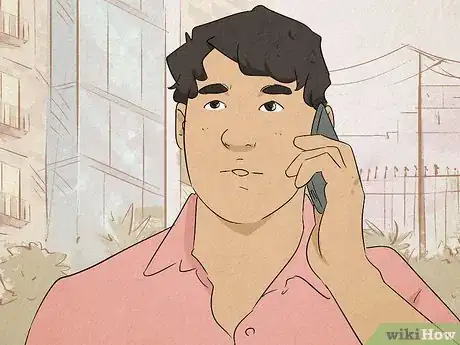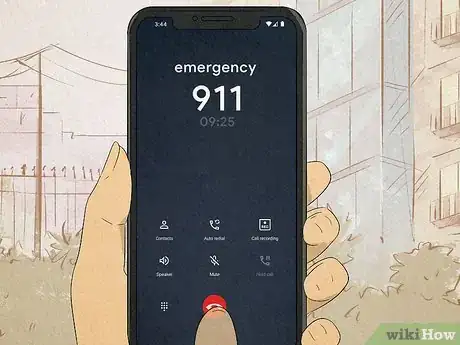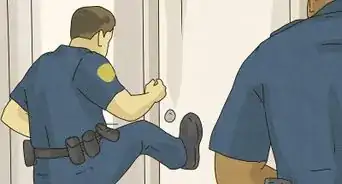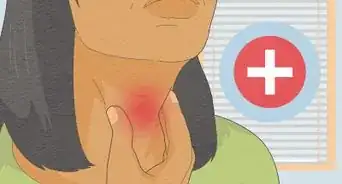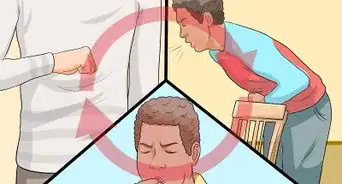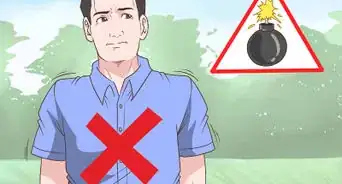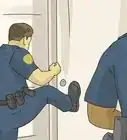This article was co-authored by Saul Jaeger, MS. Saul Jaeger is a Police Officer and Captain of the Mountain View, California Police Department (MVPD). Saul has over 17 years of experience as a patrol officer, field training officer, traffic officer, detective, hostage negotiator, and as the traffic unit’s sergeant and Public Information Officer for the MVPD. At the MVPD, in addition to commanding the Field Operations Division, Saul has also led the Communications Center (dispatch) and the Crisis Negotiation Team. He earned an MS in Emergency Services Management from the California State University, Long Beach in 2008 and a BS in Administration of Justice from the University of Phoenix in 2006. He also earned a Corporate Innovation LEAD Certificate from the Stanford University Graduate School of Business in 2018.
This article has been viewed 82,019 times.
Reporting an emergency is one of those things that seems simple enough, until you actually have to do it. That's when nerves take over, and you're lucky if you remember your name! If you find yourself in the midst of an emergency, take a deep breath and remember these instructions.
From a Fire Box
These are commonly found in cities like San Francisco and New York. Although they are losing popularity in other cities, the technology has proven to be critical especially when other more modern technologies fail. These can only be used to contact the fire brigade; emergency phones can be used in other circumstances.
-
1Locate a fire box. These are commonly painted red (for fire) and have a glass cover on them to prevent accidental activation.
-
2Lift or break the cover for the activation station. An emergency box will have a cover protecting it to avoid accidental activation. Lift or break this cover to access the emergency box.
-
3Pull the lever all the way down or press the button. You may hear an audible alarm coming from the box to let you know that you successfully alerted the appropriate authorities.
- Some of these boxes are emergency telephones, and you need to talk to the operator to get the appropriate help.
- These boxes work by sending coded messages to nearby fire stations that can be decoded to a particular location.
- If you get no audible feedback from an emergency box, then assume your message was not transmitted and either try a different box or dial emergency services directly.
From Your Cell Phone
-
1Call emergency services. The emergency number varies by country. In the United States, it's 911 and is 112 across most of Europe.[2]
-
2Report your location. The first thing the emergency dispatcher will ask is where you are located, so the emergency services can get there as quickly as possible. Give the exact street address, if possible; if you're not sure of the exact address, give approximate information.[3]
-
3Give the dispatcher your phone number. This information is also imperative for the dispatcher to have, so s/he is able to call back if necessary.[4]
-
4Describe the nature of the emergency. Speak in a calm, clear voice and tell the dispatcher why you are calling. Give the most important details first, then answer the dispatcher's follow-up questions as best you can.[5]
- If you're reporting a crime, give a physical description of the person committing the crime.
- If you're reporting a fire, describe how the fire started and where exactly it is located. If someone has already been injured or is missing, report that as well.
- If you're reporting a medical emergency, explain how the incident occurred and what symptoms the person currently displays.
-
5Follow the dispatcher's instructions. After the dispatcher has gathered all the necessary information, s/he may tell you to assist the person or people in need. You may receive instructions on how to give emergency medical treatment, such as CPR. Pay careful attention, and do not hang up the phone until you are instructed to do so. Then follow the instructions you were given.
-
6Remain on the line until you are told to hang up. Even if you can't keep the phone to your ear or on loudspeaker, you should still keep your phone on and not terminate the call.[6]
-
7Hang up the call when instructed to do so by the dispatcher. If it's necessary to make another call, then you can do so. Just follow the steps in this article again.
Expert Q&A
-
QuestionWhat do you call when it's not an emergency?
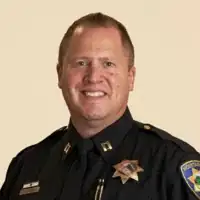 Saul Jaeger, MSSaul Jaeger is a Police Officer and Captain of the Mountain View, California Police Department (MVPD). Saul has over 17 years of experience as a patrol officer, field training officer, traffic officer, detective, hostage negotiator, and as the traffic unit’s sergeant and Public Information Officer for the MVPD. At the MVPD, in addition to commanding the Field Operations Division, Saul has also led the Communications Center (dispatch) and the Crisis Negotiation Team. He earned an MS in Emergency Services Management from the California State University, Long Beach in 2008 and a BS in Administration of Justice from the University of Phoenix in 2006. He also earned a Corporate Innovation LEAD Certificate from the Stanford University Graduate School of Business in 2018.
Saul Jaeger, MSSaul Jaeger is a Police Officer and Captain of the Mountain View, California Police Department (MVPD). Saul has over 17 years of experience as a patrol officer, field training officer, traffic officer, detective, hostage negotiator, and as the traffic unit’s sergeant and Public Information Officer for the MVPD. At the MVPD, in addition to commanding the Field Operations Division, Saul has also led the Communications Center (dispatch) and the Crisis Negotiation Team. He earned an MS in Emergency Services Management from the California State University, Long Beach in 2008 and a BS in Administration of Justice from the University of Phoenix in 2006. He also earned a Corporate Innovation LEAD Certificate from the Stanford University Graduate School of Business in 2018.
Police Captain, Mountain View Police Department You can call the local non-emergency number. If you're not sure whether you should dial 911 or the non-emergency number, just default to 911. If it's not an emergency, they'll put you on hold and come back to you.
You can call the local non-emergency number. If you're not sure whether you should dial 911 or the non-emergency number, just default to 911. If it's not an emergency, they'll put you on hold and come back to you.
Warnings
- Never make a false call. You will risk the lives of people who need emergency help. False calls to the Emergency Services are illegal and punishable by fines and/or jail time in some countries.⧼thumbs_response⧽
- If the emergency is a fire, don't stay in the house. Leave immediately, and call from a neighbor's house.⧼thumbs_response⧽
- When you make the call, you will be very nervous and find it difficult to even remember the cross streets or your address, even if you're home. Write all this information down on paper before an emergency, and attach it to the wall where the telephone is. This way you can read off the information the dispatcher asks you.⧼thumbs_response⧽
- Knowing how to communicate during an emergency might be more important if you are worried about how to contact emergency services over a more extended event (like a major earthquake or flood).⧼thumbs_response⧽
References
- ↑ Saul Jaeger, MS. Police Captain, Mountain View Police Department. Expert Interview. 21 February 2020.
- ↑ Saul Jaeger, MS. Police Captain, Mountain View Police Department. Expert Interview. 21 February 2020.
- ↑ Saul Jaeger, MS. Police Captain, Mountain View Police Department. Expert Interview. 21 February 2020.
- ↑ Saul Jaeger, MS. Police Captain, Mountain View Police Department. Expert Interview. 21 February 2020.
- ↑ Saul Jaeger, MS. Police Captain, Mountain View Police Department. Expert Interview. 21 February 2020.
- ↑ Saul Jaeger, MS. Police Captain, Mountain View Police Department. Expert Interview. 21 February 2020.
